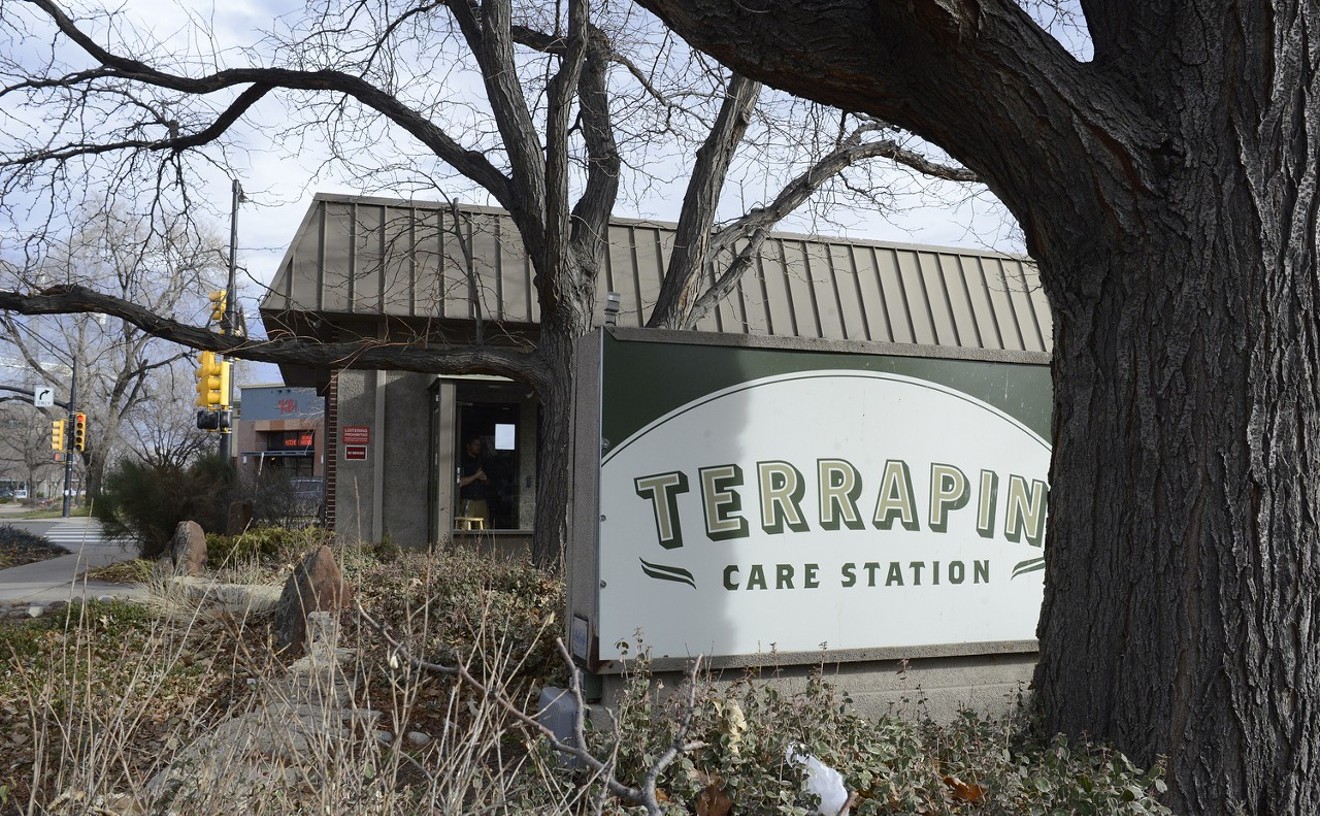On Wednesday, September 21, members of an interim legislative committee voted 5-0 to endorse a proposal that would add acute stress disorder and post-traumatic stress disorder to the list of medical conditions that can be legally treated with medical marijuana in Colorado. The committee's endorsement does not make the bill
Eighteen states, plus Guam and Washington, D.C., currently allow medical marijuana to be prescribed to treat PTSD. This November, Montana voters will decide whether to add PTSD to their medical program.
So far, though, the Colorado Board of Health has rejected every petition to add a qualifying condition, including four separate petitions to add PTSD. Last year the board rejected the most recent application, citing a lack of clinical evidence that showed marijuana's efficacy in treating those suffering from PTSD. After that decision, five PTSD patients — a sexual-assault survivor and four veterans — filed a complaint against the Board of Health. The lawsuit is currently on appeal at the Colorado Court of Appeals.
Mark Salley, communications director at the state Department of Public Health and Environment, says that the department is currently "neutral" on the issue of medical marijuana as a treatment for PTSD. "We have not done any research on it or conducted any interviews as of now," Salley says.
Last month, the legislative committee heard testimony from PTSD patients, medical
Joseph Cohen, a Colorado physician, testified in support of the bill. "[Medical marijuana] is more than helpful. It's by far, no contest, the absolute best medication for PTSD. You have a non-toxic drug with cannabis, one with very, very few side effects," he says.
But some medical professionals and industry associations, including the Colorado Medical Society and the Colorado Psychiatric Association, are concerned that the addition of PTSD to Colorado's medical program is premature. "To date, there is no compelling evidence that any psychiatric condition improves with whole-plant marijuana," says Doris C. Gundersen, a Colorado psychiatrist. She adds that some recent research, including a 2015 Yale study on veterans with PTSD, shows that marijuana can actually aggravate PTSD symptoms.
"We know that there's harm, and we don't have the science. There are over 400 compounds in whole-plant marijuana that should be studied individually," says Gundersen. "But we're dynamic. If there's evidence that it's helpful, we will change our stance."
According to Gunderson, some of her patients have found relief from PTSD-related anxiety and insomnia by using certain strains of marijuana oil. "The money will be with CBD. That's a component of marijuana that does seem to be promising in terms of reducing anxiety and improving sleep," she says, adding that CBD oil made from hemp plants, rather than marijuana plants, is already available for purchase online in any state.
Research on how marijuana interacts with PTSD has been stymied by federal restrictions on marijuana itself, which is classified as a Schedule 1 controlled substance under federal law. According to data collected by the Marijuana Policy Project, several studies performed outside of the U.S. have found that marijuana can relieve some PTSD symptoms.
Earlier this year, the U.S. Drug Enforcement Administration finally approved Sue Sisley's study of marijuana use and PTSD. The study, which is partly funded by a $2 million grant from the Colorado health department, is being conducted by the Multidisciplinary Association for Psychedelic Studies and focuses on 76 veterans with treatment-resistant PTSD. The study will take about three years to complete.
There are currently 102,830 medical marijuana patients registered in Colorado. Over 90 percent of those patients use medical marijuana for severe pain; if PTSD is approved as a condition that could be treated with medical marijuana, those patient rolls could increase.
"There's plenty of evidence out there," says Cohen. "[But] it's a catch-22. If you can't do the studies, you can't show it's effective. But we see every day in our practice that it's effective."










